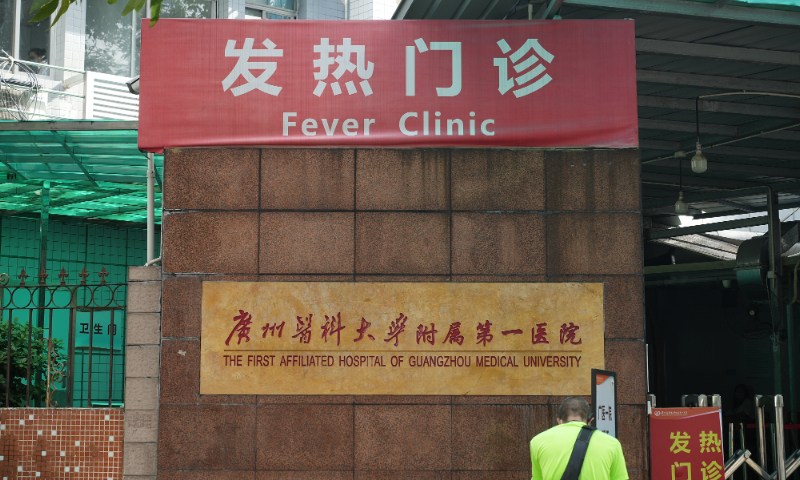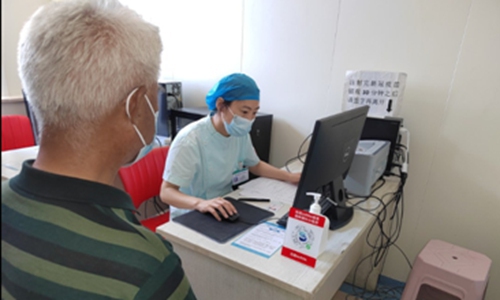COVID-19 infections account for over 20% of the patients at fever clinics around South China's Guangzhou

The photo taken on August 21, 2022 shows the fever clinic of the First Affiliated Hospital of Guangzhou Medical University. Photo: VCG
COVID-19 infections account for more than 20 percent of patients tested at fever clinics around Guangzhou, South China's Guangdong Province, China's top respiratory disease expert Zhong Nanshan revealed on Monday.
According to statistics from the fever clinics around Guangzhou, among the patients who are tested, 20 to 25 percent are positive for COVID-19. The prevailing variant in the city at present is the Omicron variant XBB.1.9.1.
Statistics from the Chinese Center for Disease Control and Prevention shows that Omicron XBB.1.9.1 variant was first found imported to the Chinese mainland two months ago. The variant was detected for the first time in local cases on the Chinese mainland between March 3 and 9. The accumulated number of infections with Omicron XBB.1.9.1 variant has surpassed 100 since April 14.
At present, the variant has been spreading in multiple countries and regions including the UK, Germany, France, the US, the Philippines and Singapore. The World Health Organization (WHO) has also been monitoring the variant, noting it spreads rapidly but causes mild symptoms.
Regardless of symptoms, an increase in the level of COVID-19 antibodies within the body suggests that the person has been infected, according to Zhong.
From this perspective, approximately 85 percent of the total population in the country, or around 1.1 billion to 1.2 billion people, have been infected with COVID-19 based on testing results, he said.
Based on relevant laboratory studies and real-world research in places such as Singapore, the antibodies produced after a COVID-19 infection can provide protection to the human body for a period of four to six months. However, when faced with the XBB variant, their protective ability may be weakened. "Starting from December of last year, we have actually already reached this time point," said Zhong.
Zhong revealed that in the next steps to combat COVID-19, it is necessary to develop vaccines that can cover the XBB variants, which include mRNA vaccines and recombinant protein vaccines, mainly targeting specific populations such as people with weakened immunity or the elderly with serious underlying diseases. On the other hand, timely treatment with medicines upon infection can significantly reduce the mortality rate.
Zhong made the remarks during the launch ceremony of clinical research of Leritrelvir Tablets, after it hit the market. The tablet is China's first domestically developed innovative drug that targets the 3CL protease of COVID-19.
The tablet received conditional approval and was launched in March for the treatment of mild to moderate adult patients infected with COVID-19. Research has shown that the antiviral effect of this medicine is comparable to that of Pfizer's Paxlovid, while effectively avoiding the toxic side-effects associated with the combined use of Ritonavir.
Global Times


